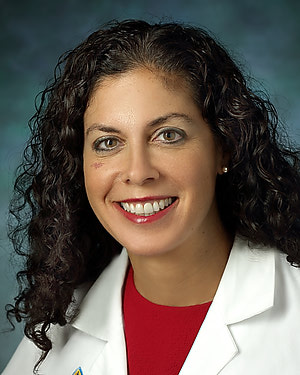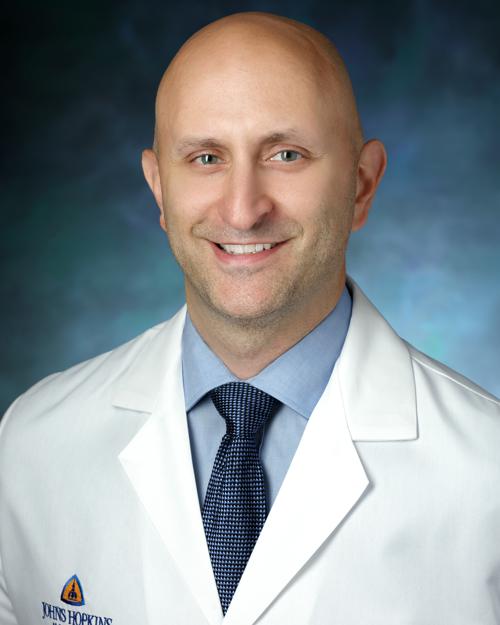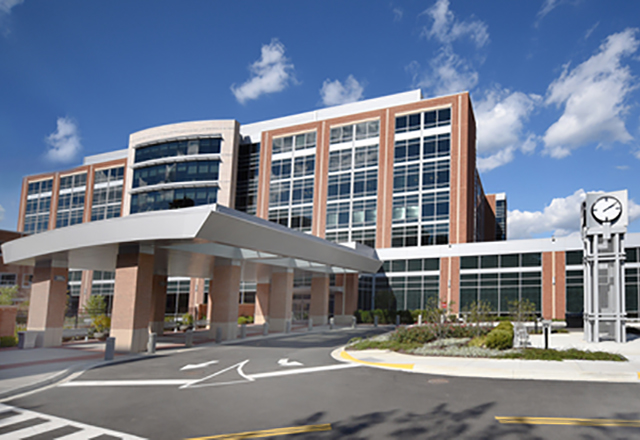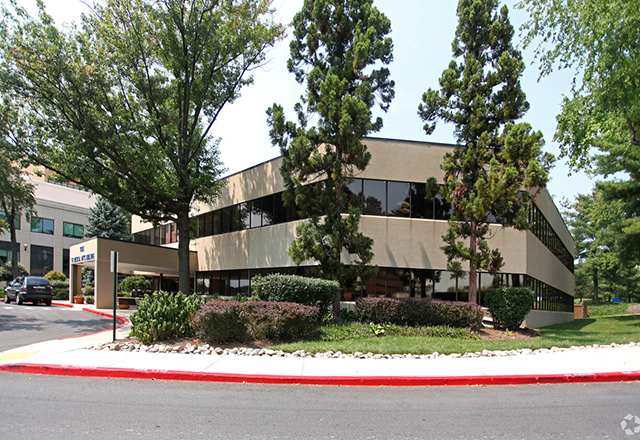-
Lilah F. Morris-Wiseman, MD

- Chief, Johns Hopkins Division of Endocrine Surgery
- Associate Professor of Surgery
Johns Hopkins endocrine surgeons are experienced in providing state-of-the art surgical care of endocrine diseases — those that impact the thyroid, parathyroid and adrenal glands. At Johns Hopkins, we collaborate with experts in endocrinology, ultrasound and diagnostic imaging, nuclear medicine, pathology, genetics, and oncology to offer a comprehensive approach tailored to each person's needs. We are leaders in assessing outcomes to ensure the quality of the treatments we offer. Research informs every aspect of your care to ensure that you benefit from cutting-edge treatment options.
Schedule an Appointment
Schedule by phone
Schedule online through MyChart

Why Choose Johns Hopkins for Endocrine Surgery
Advanced Training and Experience
Multidisciplinary Care

Teamwork
Quality Outcomes
Individualized, Patient-Centered Approach to Care
Advanced Research
Along with providing patient care, we conduct research on our outcomes and endocrine surgical diseases to ensure we are providing the best and most effective care.
Conditions We Treat
Our surgeons treat the following endocrine conditions. Learn more about these conditions.
Thyroid
- Goiter
- Graves' disease
- Hashimoto's thyroiditis
- Hyperparathyroidism
- Thyroid cancer, disease and tumors
- Thyroid nodules
Parathyroid
- Primary hyperparathyroidism
- Secondary hyperparathyroidism
- Tertiary hyperparathyroidism
- Parathyroid cancer
- Parathyroid tumors (nodules)
Adrenal
- Adrenal tumors (in collaboration the Comprehensive Adrenal Center)
- Adrenocortical carcinoma
- Pheochromocytoma
- Cushing’s syndrome
- Primary aldosteronism (aldosteronoma)
Genetic Disorders
- Multiple endocrine neoplasias (MEN1, MEN2A, MEN2B)
- Familial medullary thyroid cancer
- Familial papillary thyroid cancer
- Succinate dehydrogenase mutations (SDH)
- Paraganglioma
- Minimally invasive endocrine surgery
- Thyroid surgery including thyroidectomy
- Parathyroid surgery including parathyroidectomy
- Adrenal surgery including laparoscopic and robotic adrenalectomy
- Reoperative or revision surgery
Active Research
Thyroid Research
- Shared decision-making: Research on this concept evaluates how shared decision-making related to the extent of thyroid surgery is influenced by the patient's gender, race, ethnicity and social status.
- Environmental exposures leading to thyroid disease and cancer: We are conducting studies to understand how components of the environment impact the thyroid gland over a lifetime.
- Health literacy: Our team is conducting a study to determine how patients select the best thyroid surgery for them when there are multiple options. Our goal is to learn how patients best understand their treatment options to improve patient education and assist them in making the most informed choice, and the best one for them.
Adrenal Research
- Quality of life after adrenalectomy: Our team is conducting research to evaluate the quality of life for individuals with Cushing's syndrome after undergoing an adrenalectomy. Patients who have an adrenal nodule and Cushing's syndrome (excessive steroid hormone) have many challenging symptoms, including a change in appearance (round, puffy face); buffalo hump (an increase in fat pads just below the back of the neck); truncal obesity (increase in weight around the abdomen); wasting of muscles that causes weakness; easy bruising; facial hair in women; purplish "stretch marks" on the abdomen; easy infections; thinned skin with easy bruising or bleeding; high blood pressure; and changes in emotions, from feelings of high to low. Some patients with excess steroid have nodules in both adrenal glands. We are examining whether quality of life is better for patients who have one adrenal gland removed (laparoscopic adrenalectomy), versus both adrenal glands removed (bilateral adrenalectomy).
Parathyroid Research
- High parathyroid hormone (PTH): We are enrolling patients in a clinical study to help understand how high PTH levels can affect the heart and brain. Specifically, we are studying how high PTH impacts your mood and how you think (cognitive function). High PTH does not impact everyone the same way. We are working to identify other blood markers that can predict which patients with hyperparathyroidism will develop changes in cognitive function so we can work to prevent those changes.
Recently Published Research
Dr. Lilah Morris-Wiseman reviews how the genetics of papillary thyroid cancer can predict survival in BRAF V600E Decreases Survival in Patients with Papillary Thyroid Cancer-Related Lymph Node Metastases.
Endocrine Surgeons and Care Providers
Our surgeons have a comprehensive understanding of endocrinology, radiology, pathology and oncology, collaborating with specialists to determine which treatment options would be best for your endocrine condition.



Frequently Asked Questions
-
Having surgery in a teaching hospital or “academic medical center” offers several advantages. We are uniquely focused on education, research and complex patient care. Our outcomes are scrutinized as we are held to the highest standards. Patients who value a high level of attention, innovation and thoroughness seek out this environment for care.
Expertise: Besides being expert surgeons, our doctors are leaders in their field in research and teaching, so we know the best of what’s out there. We frequently collaborate with experts across disciplines, ensuring comprehensive and personalized care. Our care is evidence-based and protocol-driven, which improves outcomes.
Access to cutting-edge treatments: We conduct research to offer innovative surgical techniques, advanced technology and clinical trials that may not yet be available elsewhere.
Team-based approach: Patients benefit from a team of health-care providers, including attending surgeons, residents, fellows and medical students, all working collaboratively. This ensures thorough oversight and multiple layers of care.
Focus on complex cases: We are often referred patients who have complex or rare conditions that may be beyond the scope of some hospitals or surgeons. We are able to work as teams to provide care to patients who may not otherwise be candidates for surgical treatment. Our extensive experience in managing these challenging cases results in excellent outcomes.
Teaching environment: The involvement of students, residents and fellows means patients have multiple layers of care and multiple team members watching over them. This leads to more attention to each patient. This teaching environment also ensures that procedures are approached with precision and multiple perspectives.
Comprehensive postoperative support: We are able to leverage the resources available at Johns Hopkins facilities to provide extensive support for follow-up care, including (if needed) rehabilitation services, specialized clinics and access to support programs tailored to patients' needs.
Overall, surgery in an academic environment offers a blend of expertise, innovation and comprehensive care that can lead to superior outcomes, particularly for complex or high-risk cases.
-
We offer surgical care in a variety of locations and care settings. Our most complex patients have surgery at Johns Hopkins Hospital in downtown Baltimore, where we can offer an array of complex and multidisciplinary services. We work in the Levi Watkins, Jr., M.D., Outpatient Center (part of the main Johns Hopkins campus) to provide care in a more efficient manner, but use all of the resources the hospital provides. We also offer expert endocrine surgery care at Johns Hopkins Howard County Medical Center in Columbia, Maryland. Finally, we operate in two Johns Hopkins ambulatory surgery centers — at Green Spring Station and in Howard County — to provide convenient, cost-effective, efficient and patient experience-centered outpatient care in state-of-the-art facilities outside of the hospital. In addition, we evaluate patients in clinic at Sibley Memorial Hospital.
-
All of our endocrine surgeons spent an additional one to two years after general surgery training in an endocrine surgery fellowship program, specifically to learn expert care for endocrine surgery patients. We bring expertise from the Cleveland Clinic, Georgetown University, Mayo Clinic, the University of Texas MD Anderson Cancer Center, the National Institutes of Health (NIH) and the University of California, Los Angeles. We are all high-volume surgeons — that means we each perform more than 100 thyroid and parathyroid operations per year and more than 25 adrenalectomies per year. We not only have expertise in the operation: we also lead guideline development for the treatment of these problems, which helps individualize care.
-
Endocrine surgeons are experts in treating thyroid cancer. Most thyroid cancer cases do not spread throughout the body but can spread to lymph nodes in the neck. Evaluating the neck lymph nodes before surgery and taking out sections of suspicious or cancerous lymph nodes during surgery are part of what we do. With specific, complex cancer procedures, we will sometimes work with other expert surgeons to provide the care you need.













